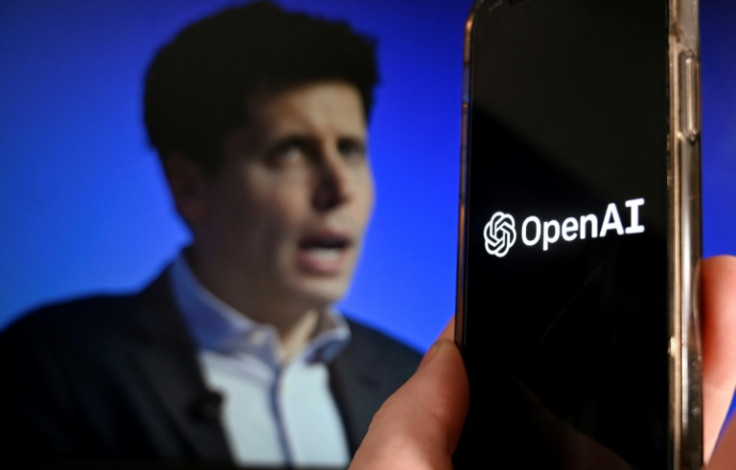How Much Do OpenAI Engineers Make? Sam Altman Says Top Talent Rejected Meta's $100M Signing Bonus
OpenAI engineers rejecting large offers shows their mission-driven culture outweighs extreme financial incentives

Have you ever wondered about the earning potential at one of the world's most talked-about AI companies? Recent comments from OpenAI CEO Sam Altman have shed some light on just how valuable top engineering talent is in this competitive field, highlighting a fascinating instance where a hefty offer from Meta was reportedly declined.
The fierce competition for AI talent is intensifying, yet OpenAI's CEO, Sam Altman, asserts that his top engineers are standing firm. This loyalty holds true even in the face of astounding proposals from major tech players like Meta.
Altman disclosed in a recent interview that Meta had attempted to entice OpenAI's most skilled individuals with signing bonuses reportedly reaching an astonishing $100 million (£74.37 million). Despite these incredibly generous offers, not a single one was accepted.
Meta's Moonshot Offers
During his appearance on the Uncapped podcast, Sam Altman shared, 'There were a lot of people on our team that got giant offers—like $100 million (£74.37 million) signing bonuses—from Meta. And not one of our best people took them.'
Sam Altman says Meta is offering $100M signing bonuses to OpenAI staff.
— Yuchen Jin (@Yuchenj_UW) June 17, 2025
Not $100M annual compensation, just the signing bonus!
He clowned Meta: “that’s not how you build a great culture.” Also said none of OpenAI’s best people are leaving.
This AI talent war is crazy. pic.twitter.com/g9fYvKNdeA
To offer some perspective, LinkedIn user Linas Beliūnas highlighted that NVIDIA CEO Jensen Huang's total compensation in 2023 was approximately $34.2 million (£25.44 million). This amount comprised a base salary of $1.5 million (£1.12 million), with the remaining portion comprising stock awards and various bonuses.
While the sheer size of offers, like those from Meta to OpenAI engineers, might seem unbelievable, they show how intensely major tech companies are battling for AI talent in the era after ChatGPT.
Companies like Meta, Google DeepMind, and others are in a heated race to secure the engineers and researchers who can build advanced large language models and the next generation of AI tools.
What OpenAI Pays Its Engineers
Despite the significant allure of those $100 million (£74.37 million) offers, OpenAI appears to provide its workforce with enough compensation to foster continued dedication. Data compiled from the reputable industry platform Levels.fyi indicates that the total annual compensation for engineers at OpenAI typically falls from $238,000 (£177006.55) to $1.34 million (£1 million).
Visa applications made public, which Business Insider examined, confirm that base salaries at OpenAI range from $145,000 (£107840.13) to $530,000 (£394174.25), not including any equity or additional bonus payments.
Here's how much AI Researchers make at OpenAI, Anthropic, Inflection, Amazon, Tesla, etc
— Chief AI Officer (@chiefaioffice) December 11, 2023
- base, bonus, equity included
It's a talent & gpu war
Image source: Rora (held a workshop at NeurIPS called "New in ML". They help PHDs negotiate salaries) pic.twitter.com/lr2KPcvd7p
Sam Altman has also shared details about OpenAI's distinct profit-participation model. According to a report by Business Insider, he previously remarked, 'We have people making $300,000 base salaries with another $500,000 in profit participation units.' These PPUs (profit participation units) essentially work like equity, giving staff a stake in OpenAI's long-term financial achievements.
Why OpenAI Engineers Stay Put
So, why aren't OpenAI's leading engineers pursuing these huge payouts from Meta? A contributing factor might be OpenAI's culture, which is strongly driven by its mission. Altman hinted that many of the brightest minds currently working in AI aren't solely propelled by financial gain. He stated, 'I think people come to OpenAI to build something meaningful, not just to cash out.'
Beyond financial incentives, prestige and significant impact also play a role. OpenAI, the company behind ChatGPT, GPT-4, and DALL·E, has been at the forefront of global AI discussions. Being part of their team offers access to cutting-edge models, collaboration with world-class colleagues, and direct involvement in shaping how AI transforms society.
The Bigger Picture: A War for AI Brains
OpenAI isn't alone in this intense competition. Technology giants are increasingly using aggressive strategies to attract talent from competitors.
A Financial Times report revealed how companies conduct discreet outreach and provide extravagant benefits to persuade top individuals to join them.
However, Altman's revelation that none of his best engineers jumped ship despite $100 million (£74.37 million) offers delivers a strong message: sometimes, mission and vision are more important than money, even in Silicon Valley.
© Copyright IBTimes 2025. All rights reserved.






















